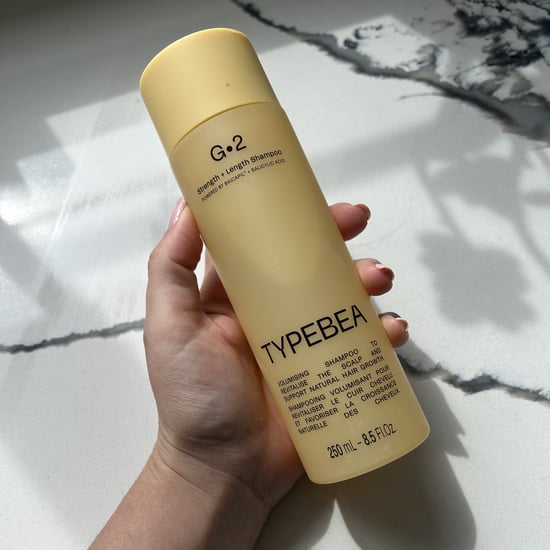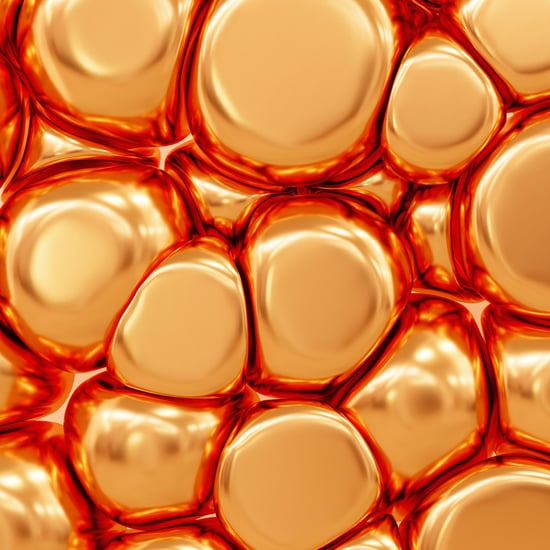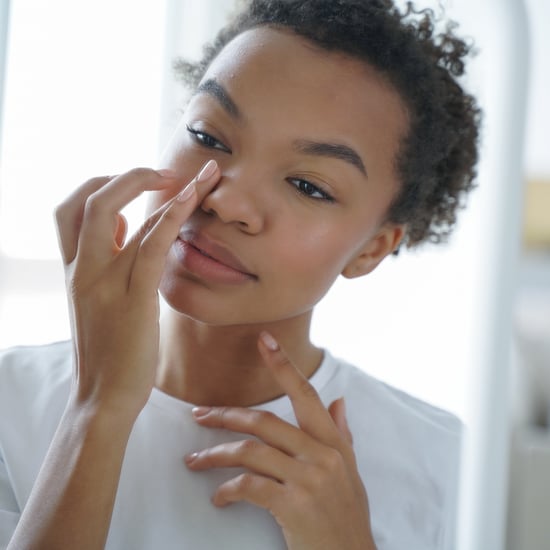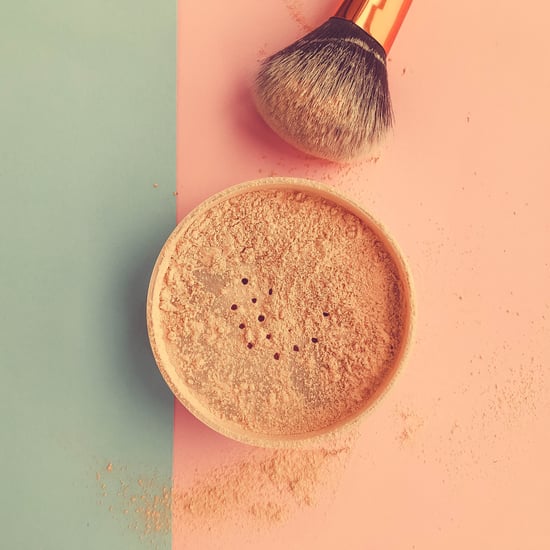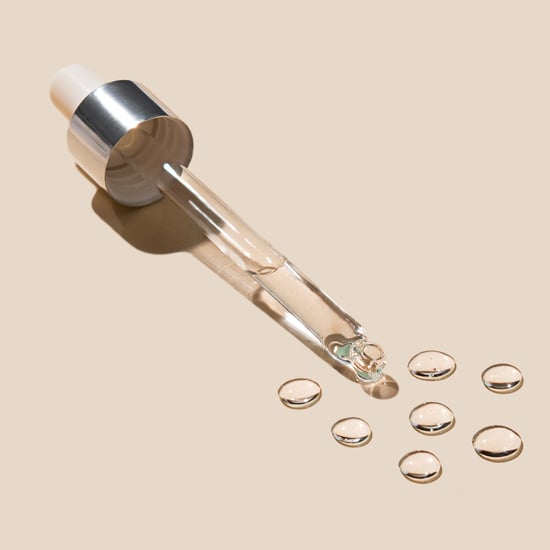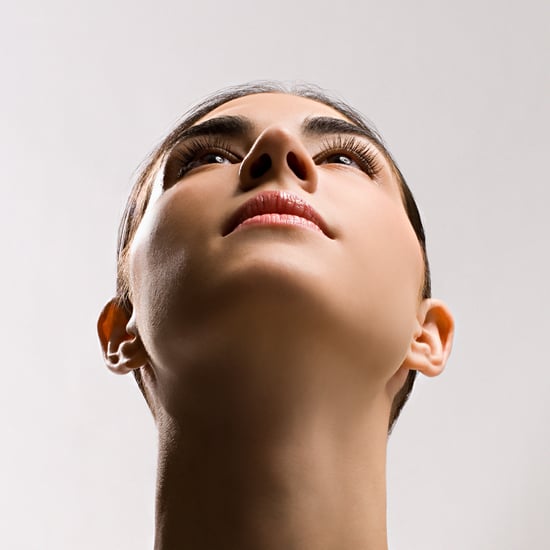Stress and Hair Loss: How Stress Affects Your Hair and Scalp
Stress and Hair Loss: Experts Explain Exactly How Stress Can Affect Your Hair and Scalp
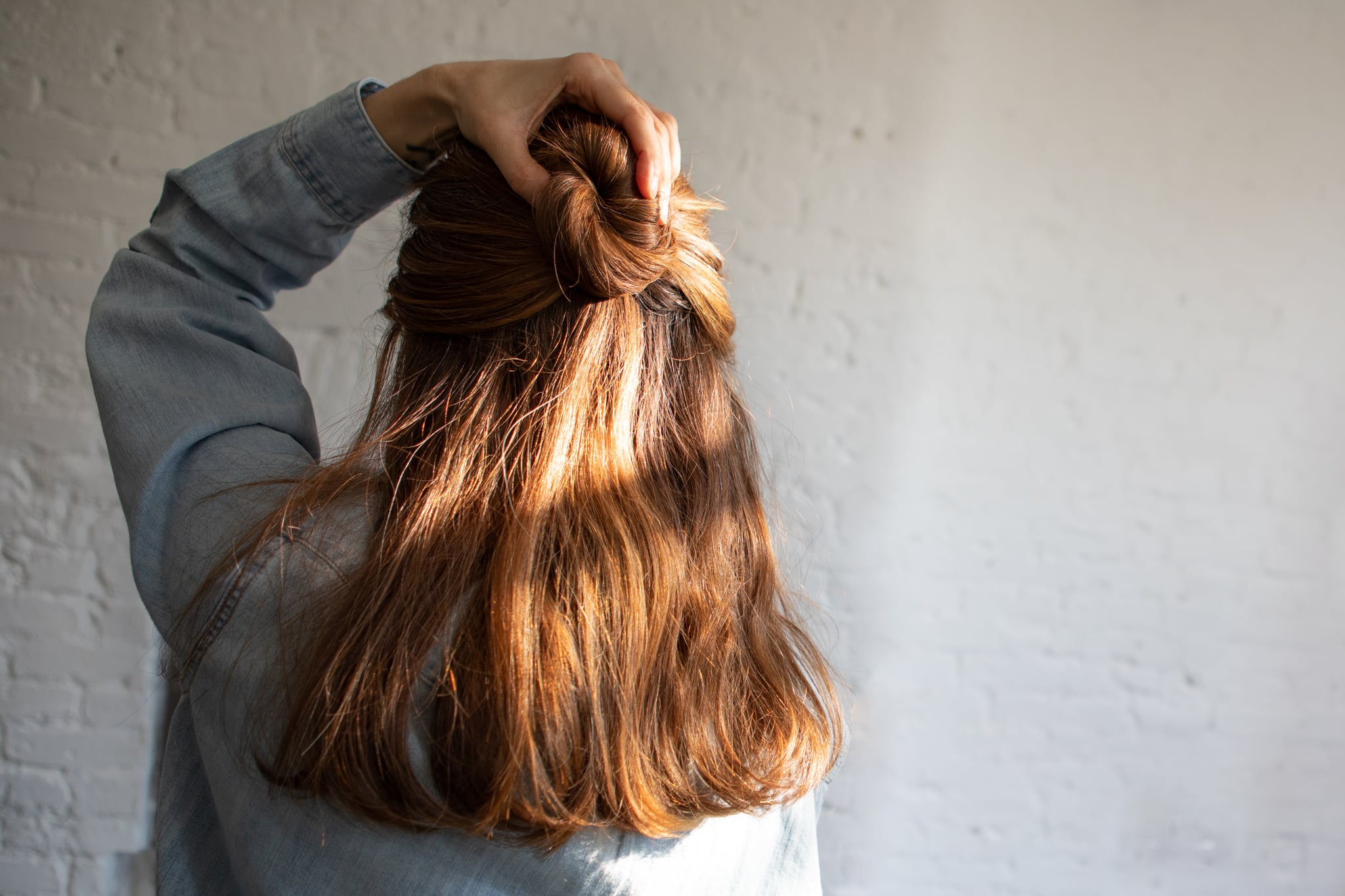
Stress and the coronavirus pandemic have basically go hand and hand. We're all trying to navigate working from home, staying safe, missing our loved ones, homeschooling, worrying about finances, weathering a heavy news cycle, being unable to plan — I mean, the list goes on. This sudden and abrupt change has left little time to adjust to this new world we're living in, and because of that, the stress we've experienced mentally and physically has caused a multitude of changes to our bodies, including our skin and our hair. Unfortunately, for many of us, our skin and hair has taken a turn for the worst.
If you've noticed that your hair is thinning and shedding more than normal, that's because, followed by genetic factors, stress is the second biggest cause of hair loss. So, if you've been wondering if stress can contribute to hair loss, the answer is absolutely yes. But there's a lot more to it than that. That's why we spoke with four hair experts to understand exactly how stress causes hair loss, what impact the pandemic has had, and exactly what you can do about it.
How Does Stress Affect Your Hair?
"Trauma- or stress-induced hair loss is known as telogen effluvium. The changes in the hormone levels in the body sends the growth cycle into shock and forces the hair to go into a resting phase, so the hairs lie dormant before eventually falling out," said Dr Bessam Farjo, hair loss expert and hair restoration surgeon based in London. Hair growth has four cycles: the anagen phase (period of active growth), the catagen phase (period of transition), the telogen phase (period of resting), and exogen phase (period of shedding). Telogen effluvium is part of the resting phase and "affects a large number of hair follicles all at the same time – in some cases, as many as 70 percent of hairs on the scalp – so it's more noticeable when it falls out," Dr Farjo said. "If there is ongoing hair loss from a different cause it will be all the more apparent," Dr Ifeoma Ejikeme, founder and medical director of Adonia Medical Clinic in London echoed.
The average person loses between 50 and 100 hairs a day. "This may sound like a lot, but when you consider that the majority of us have between 90,000 and 150,000 hairs on our head, it's a negligible amount," Dr Farjo said. But with telogen effluvium, you can lose an average of 300 per day. However, due to the duration of the hair growth cycle, there is a delay between stressful events and your hair falling out, so Dr Farjo said don't expect to have clumps of hair on your pillow after a traumatic day.
Unfortunately, when stress is the main cause, this can be a vicious cycle. The stress of hair loss can often lead to more anxiety and stress, causing further hair loss. That's why getting to the root cause of the stress is as important as treating the resulting hair loss. The good news is that telogen effluvium is typically only experienced short term, during a period of particular stress, and there are many things you can do to help — but more on that later.
Does Stress and Hair Loss Differ For Each Hair Type?
Whilst telogen effluvium affects all hair the same, other causes of hair loss (such as types of alopecia), can make the hair loss caused by telogen effluvium loss of hair more prominent in some hair types.
"Minority women, specifically African women or Africa American women, tend to experience more hair loss because of internal issues such as deficiencies and hormones, and also because of external factors, such as excessive heat styling, braids, and harsh chemicals," said Abra McField, hair psychologist, CEO and founder of Missouri-based Abra Kadabra Hair and Healing. "Something like a hair relaxer, which permanently straightens your hair, can damage your hair and scalp and cause a lifelong hair loss issue that, for some people, can be unrepairable; this is called scarring alopecia (also known as cicatricial alopecia)."
In short: telogen effluvium affects all hair types the same, but for people more susceptible to other types of hair loss, telogen effluvium can be more visible as a result. The same can be said for how telogen effluvium affects men, "who have the added likelihood of hormone-related male pattern hair loss, which can be made more apparent or even accelerated by stress-induced hair loss," explained Dr Farjo.
Does Stress Affect Your Scalp, Too?
"A shift in hormones [caused by stress] can also trigger reactions on the scalp in the same way the skin on our face. Think: hormonal acne flare ups," explained Florida-based certified trichologist and inventive colourist Bridgette Hill. "High cortisol levels result in fewer hormones that aid in hair growth leading a process called miniaturisation, which is the shrinking of the hair follicle which leads to hair loss."
"If you think of a loaded gun, think of stress as the finger on the trigger; once it is pulled, it sets off the ammunition. The ammunition could be any underlying condition where the body goes into a survival position disrupting the nutrients and cellular function required for scalp health," said Hill. "This can lead to oily scalp, dry scalp, or trigger underlying autoimmune diseases that manifests in the scalp, such as alopecia, psoriasis, or eczema." Dr Ejikeme echoed this, "certain skin conditions such as seborrheic dermatitis, eczema, and psoriasis can be aggravated by stress leading to more flaking and itching seen in a flare."
How Has the Pandemic Contributed to Hair Loss?
As far as whether COVID-19 directly causes hair loss, "it's currently under investigation as to whether [the coronavirus] actually causes hair issues, specifically hair loss, and the jury is still out at the moment," said Dr Farjo. "That said, even though we are a clinic that specialises in hair loss, we've seen an increase in hair loss enquiries over the past year", he added. Dr Farjo wasn't the only expert we spoke to experiencing an uptick, either. "I have been treating more hair shedding and dry, dehydrated scalps during the pandemic," said Hill.
A very small study out of Italy titled "Management of Telogen Effluvium During the COVID-19 Emergency: Psychological Implications" found the pandemic played a role in the increase of hair shedding amongst its 25 female participants. It found that all of the study participants (who have previously been diagnosed with telogen effluvium) reported high levels of stress and increased hair loss during the pandemic and since their last visit to the hair clinic. Although the study is far from being a hard and fast confirmation that coronavirus causes hair loss, it sheds light on the increase in those seeking help for it globally.
In addition to the direct stressors caused by the pandemic, McField noted that if it's not the stress itself causing hair loss, it could be due to stress-induced lifestyle changes such as not getting enough nutrients in your diet and not getting enough sleep.
The bottom line is, "the general stress around the pandemic has caused hair loss issues in some people that previously wouldn't have suffered, but this is more likely because of the physiological strain and psychological impact of stress, rather than the virus itself," said Dr Farjo.
What Is the Treatment For Hair Loss Caused By Stress?
The good news about telogen effluvium is that oftentimes it's just the body's temporary response mechanism. Once you've fully recovered from a period of stress or illness, your hair will begin the growth cycle as normal.
Finding out exactly what triggered it is most important, particularly since it's an issue so closely linked with stress. "The most important thing is to take time to find out what your stress triggers are and start to eliminate as much of that as possible," said McField.
Secondary to that are in-clinic treatments to determine whether additional treatments may be beneficial. Different types of hair loss are treated very differently, which is why it's likely worth investing in expert help to avoid buying into products and at-home treatments that have very little effect.
Professional, In-Clinic Treatments For Hair Loss
Dr Farjo highlights four main in-clinic treatments: medication, low level light treatments, platelet rich plasma (PRP) treatment, and surgical strategies like hair transplants.
Medication can help manage genetically- and hormonally-derived hair loss. "Finasteride in tablet form is probably the most effective medicine for strengthening hair and halting further loss. Another popular treatment is Minoxidil, widely known as Rogaine, which is applied as a foam or lotion," explained Dr Farjo. "These are the only FDA or MHRA-approved medications to treat patterned hair loss."
But what about supplements? Dr Farjo advised that whilst there is a place for these, they are more of a support than a treatment. He recommends Viviscal Pro and Florisene tablets, for iron-deficient women, and Lambert's Maxi-Hair as a good multi-vitamin option geared towards hair growth.
For instances where hair is still present but is thinning, low level light therapy can help. It "penetrates the skin, stimulating cells beneath to produce more protein," Dr Farjo said. This treatment can be done alone or combined with medication.
Platelet rich plasma (PRP) treatment sounds scary, but it can be a great way to encourage hair growth and improves hair quality at the earlier stages of hair loss. "We take a sample of the patient's blood and spin it in a centrifuge. This separates the platelets from the rest of the plasma to settle in a concentrated form. This platelet-rich plasma is then injected into the patient's scalp amongst the thinning hair to benefit hair growth," Dr Farjo explained.
All of these come with a cost and must be carried out by a highly trained specialist. If you don't want to or don't qualify for these treatments, there are also plenty of things you can do at home to help reduce hair thinning and hair loss.
At-Home Treatments and Tips to Reduce Hair Loss and Scalp Issues
First things first, "review your hair practices, stop any drying products to the hair and stop, or at least reduce, the use of chemical and heat straighteners until you have a handle on hair fall," Dr Ejikeme advised. "Review any combs or brushes to ensure they are appropriate for your hair and stop using scalp oils."
Easing tension is another easy thing you can do to help your hair and scalp. "Repetitively pulling the hair in a particular direction (particularly high buns and ponytails) and securing with any type of elastic or band overtime will lead to stressors on the hair fibre and may lead to breakage and shedding," said Hill. Sleeping in a hair mask and taking time for weekly scalp massages are great, too. Applying a hair mask before bed "allows maximum penetration of moisture, lipids, and proteins to penetrate the hair cuticle to serve as the best foundation for the hair to retain elasticity and strength," said Hill. And whilst scalp massages sound luxurious, doing it once a week can help stimulate hair follicles and even give you time to identify any scalp changes.
Both McField and Hill recommend exploring techniques to help alleviate immediate stress where possible. "Engage in activities that bring peace and joy to your life and be around people who bring the best out of you as well as support you in the best way. Find time throughout the day to take some deep breaths and tune in to how you are feeling. Laugh, laugh, and laugh because laughter heals," said Hill. "Try proper breathing techniques and meditation, and relax," if you can, Hill advised.
Beyond those small changes, Dr Ejikeme explained that you will need a detailed review of internal health and external factors to get to the root cause of your hair loss and once a diagnosis has been made, certain over-the-counter products and other treatments can be considered.
